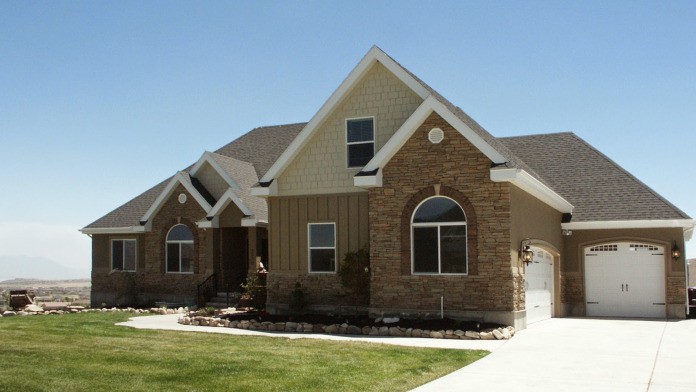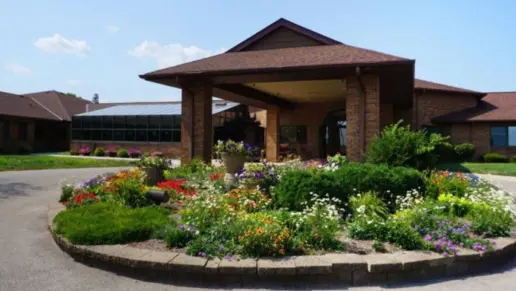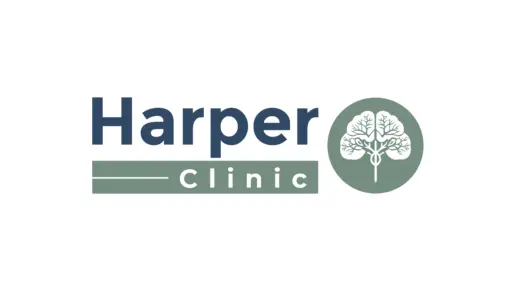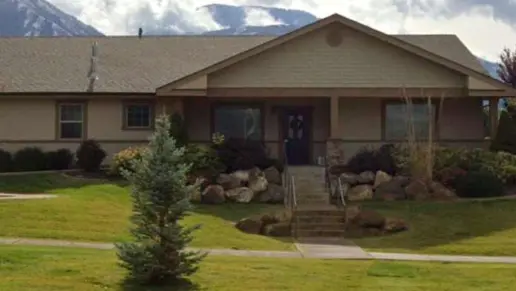The prices are ridiculous! for institutions that they have, you could get something much better for that or a better price price
About Utah Addictions Centers
At half the cost of most private facilities and treatment centers, the Utah Addiction Centers’ multi-disorder treatment provides personalized outpatient and residential treatment for depression, anxiety, sexual disorders, substance abuse, and other behavioral health issues. Utah Addiction Centers personalize treatment to each individual’s specific needs in order to promote emotional, physical, mental and spiritual healing.
Utah Addiction Center believes that each individual has his/her own inner-strength, abilities, and unique behavioral healthcare needs; therefore their mission is “To deliver compassionate, person centered treatment for the individual suffering from depression, anxiety, substance abuse, sexual disorders or other problems… in a holistic and nurturing environment.”
At half the cost of most private facilities and treatment centers, the Utah Addiction Centers’ multi-disorder treatment provides personalized outpatient and residential treatment for behavioral health issues. Addictions are compulsive behaviors used to cope from trauma and emotional detachment. At the Utah Addiction Centers, treatment is designed to identify and resolve trauma, minimize triggers, and eliminate risks of relapse.
Hope, healing and happiness are possible. Utah Addiction Centers personalizes treatment to each individual’s specific needs in order to promote emotional, physical, mental and spiritual healing. When someone struggles with depression, anxiety, sexual addictions, or alcohol and substance abuse problems, it can destroy lives and damage relationships. Healing the damage caused by addiction is the main reason we do what we do.
The broad treatment utilizes the traditional 12 step model, psychotherapy and medical services. Treatment is personalized to the individual’s specific needs and consists of emotional, physical and spiritual healing. This holistic approach quickly empowers the guests with essential knowledge, support and tools to maintain a positive and healthy life. When suffering from underlying mental health or behavioral problems, healing starts from within.
Latest Reviews
Rehab Score
Gallery

Location
Accepted Insurance
Other Forms of Payment
Private insurance refers to any kind of healthcare coverage that isn't from the state or federal government. This includes individual and family plans offered by an employer or purchased from the Insurance Marketplace. Every plan will have different requirements and out of pocket costs so be sure to get the full details before you start treatment.
Self-pay involves paying for treatment out of your own pocket. You can use savings or credit, get a personal loan, or receive help from family and friends to fund your treatment. If you don't have insurance or your insurance plan doesn't cover a specific program, self-pay can help ensure you still get the care you need.
Sliding scale payments are based on a client's income and family size. The goal is to make treatment affordable to everyone. By taking these factors into account, addiction recovery care providers help ensure that your treatment does not become a financial burden to you or your family, eliminating one barrier to care.
Military members, veterans, and eligible dependents have access to specific insurance programs that help them get the care they need. TRICARE and VA insurance can help you access low cost or no cost addiction and mental health treatment. Programs that accept military insurance often have targeted treatment focused on the unique challenges military members, veterans, and their families face.
Financial aid can take many forms. Centers may have grants or scholarships available to clients who meet eligibility requirements. Programs that receive SAMHSA grants may have financial aid available for those who need treatment as well. Grants and scholarships can help you pai for treatment without having to repay.
Addiction Treatments
Levels of Care
Treatments
The goal of treatment for alcoholism is abstinence. Those with poor social support, poor motivation, or psychiatric disorders tend to relapse within a few years of treatment. For these people, success is measured by longer periods of abstinence, reduced use of alcohol, better health, and improved social functioning. Recovery and Maintenance are usually based on 12 step programs and AA meetings.
When you enter a drug rehab in Utah, the process usually involves four stages: treatment initiation, early abstinence, maintaining abstinence, and advanced recovery. Treatment methods can rely on medications, counseling, or both, in either an outpatient or inpatient setting.
Many of those suffering from addiction also suffer from mental or emotional illnesses like schizophrenia, bipolar disorder, depression, or anxiety disorders. Rehab and other substance abuse facilities treating those with a dual diagnosis or co-occurring disorder administer psychiatric treatment to address the person's mental health issue in addition to drug and alcohol rehabilitation.
A combined mental health and substance abuse rehab has the staff and resources available to handle individuals with both mental health and substance abuse issues. It can be challenging to determine where a specific symptom stems from (a mental health issue or an issue related to substance abuse), so mental health and substance abuse professionals are helpful in detangling symptoms and keeping treatment on track.
Opioid rehabs specialize in supporting those recovering from opioid addiction. They treat those suffering from addiction to illegal opioids like heroin, as well as prescription drugs like oxycodone. These centers typically combine both physical as well as mental and emotional support to help stop addiction. Physical support often includes medical detox and subsequent medical support (including medication), and mental support includes in-depth therapy to address the underlying causes of addiction.
Programs


Clinical Services
Cognitive Behavioral Therapy (CBT) is a therapy modality that focuses on the relationship between one's thoughts, feelings, and behaviors. It is used to establish and allow for healthy responses to thoughts and feelings (instead of unhealthy responses, like using drugs or alcohol). CBT has been proven effective for recovering addicts of all kinds, and is used to strengthen a patient's own self-awareness and ability to self-regulate. CBT allows individuals to monitor their own emotional state, become more adept at communicating with others, and manage stress without needing to engage in substance abuse.
Whether a marriage or other committed relationship, an intimate partnership is one of the most important aspects of a person's life. Drug and alcohol addiction affects both members of a couple in deep and meaningful ways, as does rehab and recovery. Couples therapy and other couples-focused treatment programs are significant parts of exploring triggers of addiction, as well as learning how to build healthy patterns to support ongoing sobriety.
Eating disorders include anorexia, bulimia, binge eating, and dysfunctional eating patterns. Many psychologists and other mental health professionals consider eating disorders to be food addictions, meaning food is being used in an addictive way (similar to drug or alcohol addiction). Certain substance abuse treatment programs will have treatment for eating disorders as one of the services offered. An eating disorder may also present as a co-occuring disorder or dual diagnosis alongside drug and alcohol addiction.
Equine therapy, aka equine-assisted therapy (EAT), is a form of experiential therapy that involves interactions and activities with horses. It does not necessarily involve riding horses, but all activities related to horses, such as feeding, grooming, haltering and leading them. A mental health professional frequently oversees the activities (often in conjunction with a horse professional), and helps patients process their thoughts, feelings, and behavior patterns during and/or after the interaction.
EMDR is an acronym for Eye Movement Desensitization and Reprocessing. An innovative and successful clinical treatment that has proven effective in treating people that have survived post traumatic stress, sexual abuse, domestic violence, crime, depression, all forms of addictions, phobias and a variety of self-esteem issues. EMDR is used as a complex approach to psychotherapy that integrates many of the successful elements of a range of therapeutic approaches in combination with eye movements or other forms of rhythmical stimulation in ways that stimulate the brain’s information processing system. With EMDR therapy it is unnecessary to delve into decades-old psychological material, but rather, by activating the information-processing system of the brain, people can achieve their therapeutic goals at a rapid rate, with recognizable changes that don’t disappear over time.
Mental health issues including addiction to alcohol and drugs is never isolated to one person’s problems. That’s why they always welcome and encourage family support during the healing process. They invite and encourage Family members to attend and participate in their comprehensive family programs, including both individual and group sessions. The family program allows their clinical team to help the family work through any issues that need to be resolved. At Utah Addiction Center, they have found that the development of meaningful, supportive relationships is a key principle for a lasting successful recovery. Their Family Therapy is a critical element in improving retention and well-being of their patients. The unique methods they have developed in their Family program have greatly improved the expected outcome of treatment.
Group therapy is any therapeutic work that happens in a group (not one-on-one). There are a number of different group therapy modalities, including support groups, experiential therapy, psycho-education, and more. Group therapy involves treatment as well as processing interaction between group members.
In individual therapy, a patient meets one-on-one with a trained psychologist or counselor. Therapy is a pivotal part of effective substance abuse treatment, as it often covers root causes of addiction, including challenges faced by the patient in their social, family, and work/school life.
Life skills trainings involve all the skills a person must have in order to function successfully in the world. These include time management, career guidance, money management, and effective communication. Truly successful addiction recovery is based on the ability to not only live substance-free, but to thrive. Life skills teaches the practical necessities of functioning in society, which sets clients up for success in life, and therefore sobriety.
Nutrition therapy, aka medical nutrition therapy (MNT), is a way of treating physical, emotional, and medical conditions through diet. Specific dietary plans are designed by professional nutritionists or registered dietitians, and patients follow them in order to positively affect their physical and mental health.
Trauma therapy addresses traumatic incidents from a client's past that are likely affecting their present-day experience. Trauma is often one of the primary triggers and potential causes of addiction, and can stem from child sexual abuse, domestic violence, having a parent with a mental illness, losing one or both parents at a young age, teenage or adult sexual assault, or any number of other factors. The purpose of trauma therapy is to allow a patient to process trauma and move through and past it, with the help of trained and compassionate mental health professionals.
Amenities
-
Private Setting
-
Mountain Views
-
Gym
Accreditations

The Joint Commission, formerly known as JCAHO, is a nonprofit organization that accredits rehab organizations and programs. Founded in 1951, the Joint Commision's mission is to improve the quality of patient care and demonstrating the quality of patient care.
Joint Commission Accreditation: Yes
Accreditation Number: 567054
Contact Information
2590 Prairie View Drive
Eagle Mountain, UT 84005







